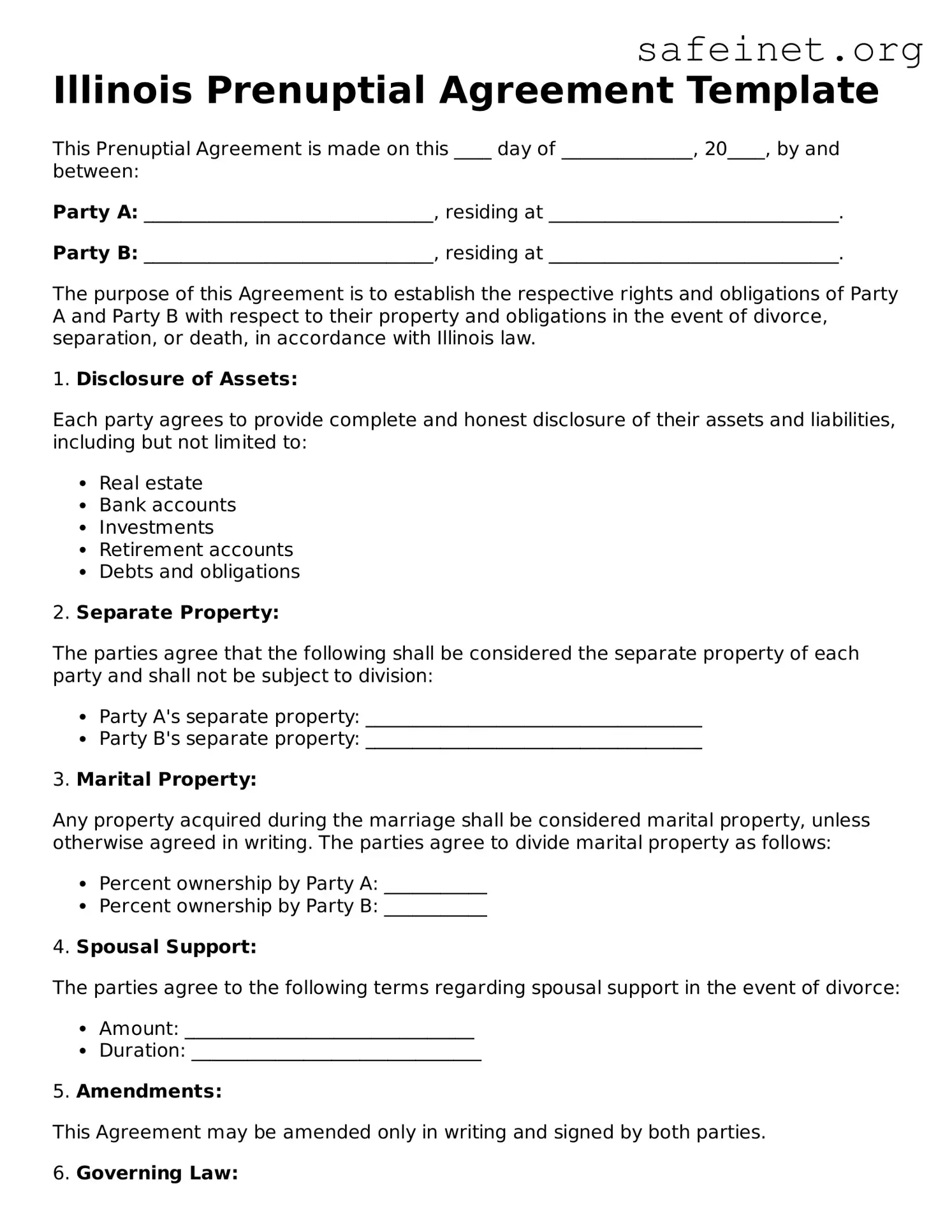Illinois Prenuptial Agreement Template
This Prenuptial Agreement is made on this ____ day of ______________, 20____, by and between:
Party A: _______________________________, residing at _______________________________.
Party B: _______________________________, residing at _______________________________.
The purpose of this Agreement is to establish the respective rights and obligations of Party A and Party B with respect to their property and obligations in the event of divorce, separation, or death, in accordance with Illinois law.
1. Disclosure of Assets:
Each party agrees to provide complete and honest disclosure of their assets and liabilities, including but not limited to:
- Real estate
- Bank accounts
- Investments
- Retirement accounts
- Debts and obligations
2. Separate Property:
The parties agree that the following shall be considered the separate property of each party and shall not be subject to division:
- Party A's separate property: ____________________________________
- Party B's separate property: ____________________________________
3. Marital Property:
Any property acquired during the marriage shall be considered marital property, unless otherwise agreed in writing. The parties agree to divide marital property as follows:
- Percent ownership by Party A: ___________
- Percent ownership by Party B: ___________
4. Spousal Support:
The parties agree to the following terms regarding spousal support in the event of divorce:
- Amount: _______________________________
- Duration: _______________________________
5. Amendments:
This Agreement may be amended only in writing and signed by both parties.
6. Governing Law:
This Agreement shall be governed by the laws of the State of Illinois.
7. Entire Agreement:
This document constitutes the entire agreement between the parties and supersedes any prior agreements or understandings.
IN WITNESS WHEREOF, the parties have executed this Prenuptial Agreement as of the day and year first above written.
Party A Signature:______________________
Date:______________________
Party B Signature:______________________
Date:______________________
Witnessed by:
Witness Signature:______________________
Date:______________________
